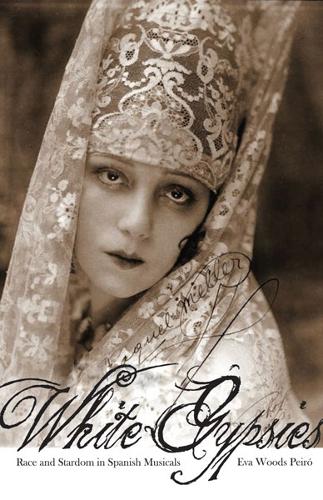
White Gypsies: Race and Stardom in Spanish Musicals
(Paperback)
Publishing Details
White Gypsies: Race and Stardom in Spanish Musicals
By (Author) Eva Woods Peir
University of Minnesota Press
University of Minnesota Press
2nd April 2012
United States
Classifications
General
Non Fiction
European history
791.436552
Physical Properties
Paperback
320
Width 140mm, Height 216mm, Spine 23mm
Description
Little has been written about the Spanish film musical, a genre usually associated with the early Franco dictatorship and dismissed by critics as reactionary, escapist fare. A timely and valuable corrective, White Gypsies shows how the Spanish folkloric musical films of the 1940s and 50s are inextricably tied to anxious concerns about raceespecially, but not only, Gypsiness.
Focusing on the processes of identity formation in twentieth-century Spainwith multifaceted readings of the cinematic construction of class, gender, and sexualityEva Woods Peir explores how these popular films allowed audiences to negotiate and imaginatively, at times problematically, resolve complex social contradictions. The intricate interweaving of race and modernity is particularly evident in her scrutiny of a striking popular phenomenon: how the musicals progressively whitened their stars, even as their story lines became increasingly Andalusianized and Gypsified.
White Gypsies reveals how these imaginary individuals constituted a veritable cultural barometer of how racial thinking was projected and understood across a broad swath of popular Spanish cinema.
Reviews
"White Gypsies enriches our understanding of the material history of the pre-, post-, and civil war periods, broadens Spanish cinema studies to focus on more popular forms of film entertainment, and combines a novel attention to race with nuanced readings of the intersections of the cinematographic construction of class, gender, and sexuality during the first half of the twentieth century." Susan Martin-Mrquez, Rutgers University
"Eva Woods Peir argues that Spanish musicals, while highly ambivalent and problematic in terms of their representation of race, are not reactionary exaltations of a premodern rural Spain but that their central notion of female stardom inserts women into modernity. This crucial perception turns interpretations of the genre on its head." Jo Labanyi, New York University
Author Bio
Eva Woods Peir is associate professor of Hispanic studies and director of the Media Studies Program at Vassar College.
